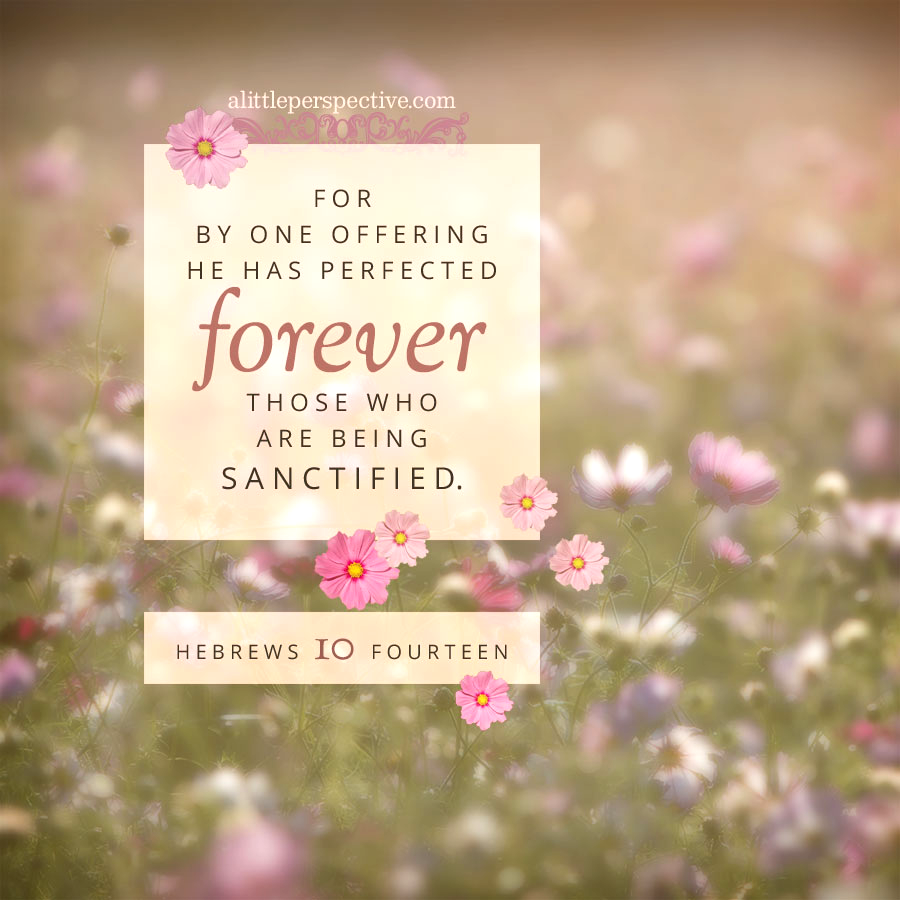Read Hebrews 10 at Bible Gateway.
The author continues his theme that we have been reading: that the once for all sacrifice of Jesus Christ to cleanse from sin, is superior to the multiple and continuing animal sacrifices which could not cleanse but merely cover over sins:
Heb 10:1-14
1a) Heb 10:1-2, The Law, a shadow of Christ, cannot with sacrifices offered continually, make perfect;
1b) Heb 10:3-4, Repeated sacrifices remind of sins/ blood of bulls + goats could not take away sins;
central axis) Heb 10:5-10, Single theme repeated twice for emphasis: God took no pleasure in continual sacrifices, but prepared a body for Jesus Christ as an offering once for all to accomplish sanctification, therefore He has taken away the animal sacrifices upon the establishment of His better sacrifice;
2b) Heb 10:11, Every priest offers repeatedly the same sacrifices, which can never take away sins;
2a) Heb 10:12-14, Jesus offered one sacrifice forever, by it perfecting forever those who are being sanctified.
The author of Hebrews then reaffirms the permanency of the Law in the new covenant, quoting from Jeremiah:
“This is the covenant that I will make with them after those days, says the Lord: I will put My laws into their hearts, and in their minds I will write them,” then He adds, “Their sins and their lawless deeds I will remember no more.” Heb 10:16-17
No longer written solely on tablets of stone or on the pages of the Torah, He has not erased His Law, but wrote it additionally on the tablets of the human heart. Thus obedience is not now solely from outward compulsion, but from inward desire.
So then what is the value of the written Law, if that Law has also been written on the heart? There is great value … for the verb tense in the Greek in these chapters, speaking of the sanctification and perfection of the worshipers from the heart, is one of continuing action. Salvation or justification, right- standing before God, takes place in a moment in time; sanctification or purifying the life of dead and unrighteous works, takes place over the lifetime. The written code is our plumb line in a crooked and perverse world, which instructs us in righteousness and sin. As we learn, we adjust our life and practice, out of a joyful heart of love toward God and our neighbor.

















Leave a Reply